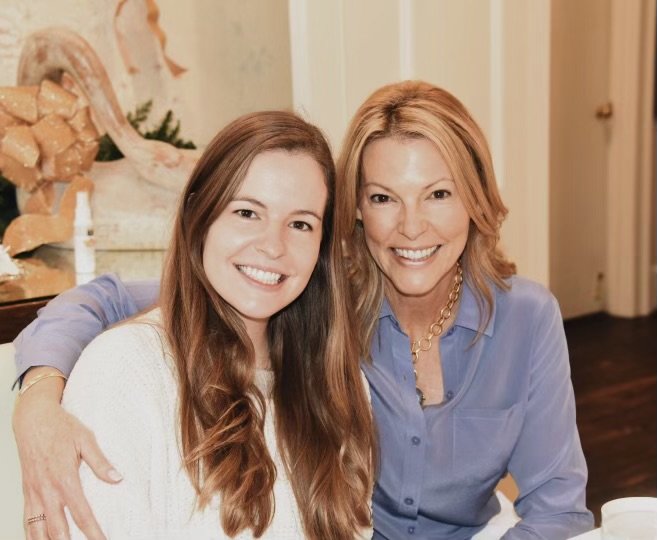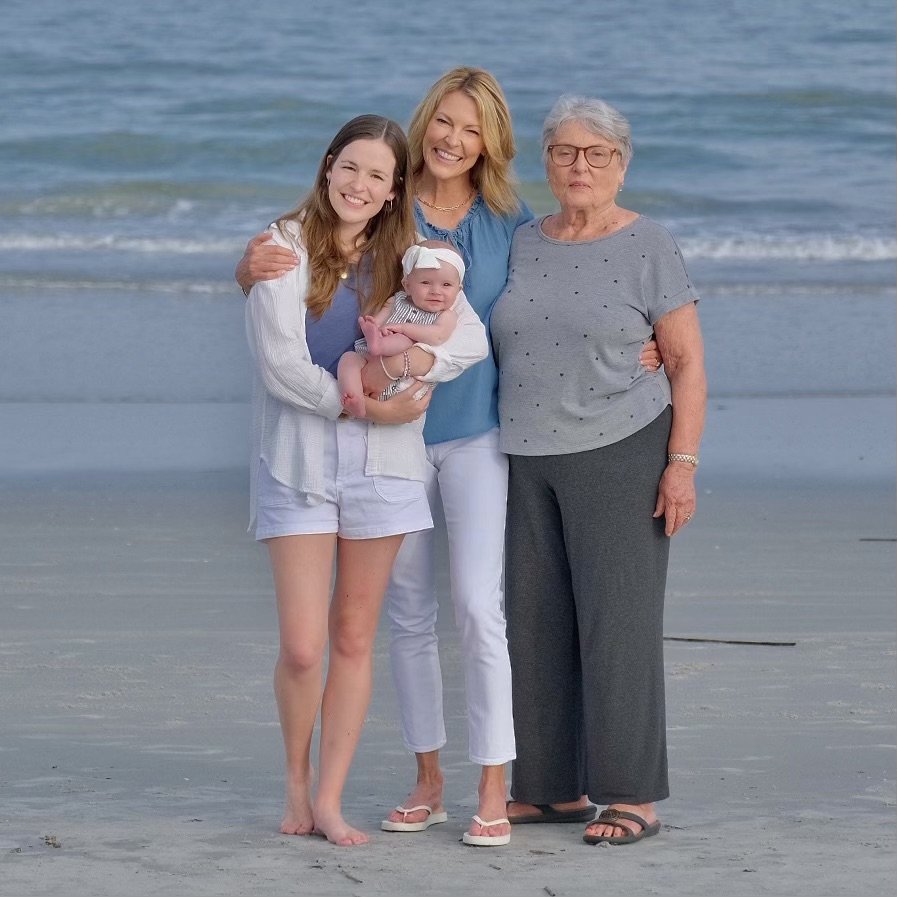Routine Check-Up Leads to Heart Transplant for Young Girl
It was just a typical checkup until Kelsey Brackett’s pediatrician heard a heart murmur. Two months later, the 9-year-old girl learned she needed a new heart.
It was an outcome Gainesville residents Zach and Sonja Brackett could have never imagined when they said I do 23 years ago.
They dreamed of becoming parents and were elated to welcome their first daughter, Jordan, now 21. They hoped to give her a sibling close in age, but they struggled with fertility issues. When they were able to get pregnant again, they were doubly blessed with twins. It was a high-risk pregnancy, but Sonja made it to 36 weeks and three days before their identical girls, Kelsey and Kinsley, arrived on July 9, 2015.
In August 2024, the twins, fourth graders at Sardis Elementary School, saw their pediatrician, Dr. Heather Butler, for their annual well-child visit. During Kelsey’s exam, the doctor asked Kelsey to repeatedly lie down and sit up, over and over again, as she listened to the child’s heart with a stethoscope.
“She heard a big murmur,” said Zach, 45, emergency management director for Hall County. “She referred us to Children’s Healthcare of Atlanta cardiology and told us not to worry, that 99% of the time it’s benign.”
The Bracketts weren’t overly concerned when they took Kelsey to the cardiologist in early September, but they left the office dazed. After an EKG and echocardiogram, Kelsey was diagnosed with severe mitral valve regurgitation, a condition in which the mitral valve does not close properly, allowing blood to flow backward into the heart.
Concerned that Kelsey’s twin might have the same issue, Sonja and Zach took Kinsley to the cardiologist a few weeks later. She was diagnosed with the same valve issue, but hers was not as progressed as her sister’s. She will be monitored every six months.
Meanwhile, Kelsey needed surgery to either repair her mitral valve or replace it — the decision would be made during the operation.
“It was gut-wrenching and scary to think of this tiny little girl, who barely weighs 45 pounds, going through a surgery like that,” said Sonja, 51. “What do I tell her? What does this mean for her future?”
While the concept of heart surgery was abstract for Kelsey, she did have questions. Would she have a scar? Would it hurt? But mostly she was just upset that she wouldn’t get to go trick-or-treating.
“She’s very smart and we didn’t want to lie to her about anything,” said Zach. “Nine-year-olds typically equate medical pain to a shot or a finger prick, so we did our best and even drew a picture to try to explain open-heart surgery to our little girl.”
Cardiothoracic surgeon Dr. Fawwaz Shaw performed surgery in late October. The valve had to be replaced. Shaw told the Bracketts Kelsey’s heart function was less than he had hoped. Two weeks later, she wasn’t improving.
“They wanted to wean her off her meds, but her heart just couldn’t keep up,” said Zach. “She was very fatigued because she didn’t have the cardiac output to supply blood to her organs, which made her nauseated and tired. That’s when conversations about a transplant began.”
Too ill to go home, Kelsey remained at the hospital and was placed on the heart transplant list in late November.
According to Dr. Shaw, 500 to 600 pediatric heart transplants are performed annually in the United States. Children’s Healthcare of Atlanta typically does between 13 and 15 a year. With older children it is possible to use adult hearts for transplants, but donor hearts from children or young adults are typically utilized at Children’s, because of the size of the patients’ chests. The one-year survival rate after transplant is 90%; the five-year survival rate is over 80%. Children’s survival rates have historically exceeded the national average.
By December, Kelsey’s condition had worsened. Their plans for a December cruise long forgotten, the Bracketts planned to celebrate Christmas together at their home away from home, Children’s Healthcare. Kinsley was even approved to sleep over with her sister after spending six weeks apart. But on Christmas Eve, Kelsey worsened and was transferred back to the intensive care unit.
It was a dark time for the family, but there were moments of joy, too.
“We did get New Year’s Eve though,” said Sonja. “Kinsley got to stay with us at Children’s, and we spun the chairs around in Kelsey’s room where we could see multiple fireworks displays out the window.”
Another bright spot was when Kelsey’s beloved French bulldog, Quinn, got to visit. Her spirit was buoyed, even as her health continued to decline.
By late January, Kelsey was gravely ill. Staff members feared she might have mere days left, but a life-changing call came through on Jan. 30. A heart was available for transplant.
“You’re so thankful when you get that call, but you know what it means,” said Zach. “You feel selfish for feeling grateful, understanding that someone else has lost a loved one. The gravity of that is pretty heavy.”
After 98 days in the hospital, Shaw replaced Kelsey’s faulty heart with a new one, but first, her mother prayed over her daughter, as she’d done for months.
“Throughout the process I put my faith in God and asked for a miracle, but when you see your baby wheeled away like that, you understand it might be the last time you see them alive,” said Sonja.
The Bracketts were reunited with their daughter around midnight and instantly noticed the color had reappeared in her face, her lips a brilliant red. The surgery was a success.
Two weeks later she was discharged.
“It was just Kelsey and I on the drive home and she was in awe, pointing out school buses saying, ‘Look there’s another and another,’” said Zach. “She wasn’t pointing out anything extraordinary, but it hit me: This girl hasn’t been outside in months. She hasn’t seen anything beyond her window.”
Today Kelsey is back to her funny, joyful self, but the family is still adjusting to their new routines. Kelsey will require medicines at least twice a day for the rest of her life to keep her body from rejecting her new heart. She will undergo constant labs and tests. And one day, she may require another transplant.
“The expectation is that she will live a long, healthy life and do all the things she wants to do,” said Shaw. “Heart transplantations in this era can last multiple decades, but it’s rare that they last forever. The big key is compliance. Often with kids, as they approach the age of 18, they get busy and stop taking their meds. That’s the biggest problem we face is kids remaining compliant.”
On Valentine’s Day, the day after Kelsey was released from the hospital, the Brackett family returned for Lights of Love. It’s an event in which patients shine flashlights out their windows to friends and family gathered outside who shine flashlights back in return as a show of support. The Bracketts expected to participate from inside the hospital but were grateful to stand outside, shining their light on the place that held them and cared for them for 108 harrowing days.
Six months after a transplant, organ recipients and their families are typically permitted to contact the organ donor’s family through a process coordinated by the transplant hospital and the organ procurement organization. One day the Bracketts hope to find out whose heart is beating in Kelsey’s chest. They want the donor’s family to meet Kelsey, and they want the opportunity to say thank you for saving their little girl’s life.






























































